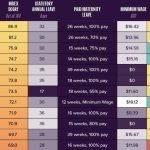You may be owed money, Kim Komando can show you how to claim it.
(iStock)
About this time every year, I like to remind people to visit a few websites and get what’s rightfully theirs. Last year, Robert from Harrisonburg, Virginia, called my national radio show to thank me for suggesting he search for lost money. He found out his deceased mother had $24,578 sitting in a bank account. He received the check in three weeks after proving he was heir to her estate.
A member of my staff helped her mother find over $5,000. She found two life insurance policies, retirement benefits, and rebates from utilities sitting unclaimed in her grandparents’ names for more than 20 years.
If you get a call claiming you’re owed something, don’t fall for it; you have to do the work yourself. Spammers will use the lure of money to trick you, though. Tap or click for my best advice to stop robocalls for good.
This year, I’m in luck. I have three checks coming my way.
What is unclaimed property?
You’re going to be looking for any of your, or a deceased relative’s, old bank accounts, safe deposit box contents, uncashed checks, insurance policies, CDs, trust funds, utility deposits, stocks and bonds, wages, and escrow accounts.
The best part: It’s free. And it’s yours. Helping everyday citizens claim lost money is one of the duties of the U.S. Treasury Department. You are entitled to those funds.
You don’t need to hire a dubious service or spend money to make money. If anyone asks for payment to help you find unclaimed property, ditch them. You can easily do it yourself.
KEEP WHAT’S YOURS: You pay your expensive internet bill every month. Is someone mooching? Tap or click for steps to spot thieves and secure your network.
Start in your home state
Finding money is pretty simple, but your search begins where you live. Each state has an independent treasury website, which has a special search function for unpaid dues. Don’t just Google the site. There are plenty of scammers on the internet, and phony websites are a definite possibility.
To find the link for your state’s treasury website, go to the National Association of Unclaimed Property site. Select your state or province.
Each state’s site is a little different, but follow the step-by-step instructions, enter your information and the database will do the rest. Often, the paperwork you need to complete to claim your money can be printed on these pages.
You will also need to provide proof of your identity and likely have signatures notarized. The time to collect depends on each government agency; it can take a couple of weeks or months, but it works.
Search Tip: If you have a frequently misspelled name or your name has variations that are often confused (Schmid, Schmidt, Schmitt), search those misspellings on the unclaimed funds’ sites. Also, be sure to search for any nicknames you have used.
Search nationally
Your specific state search may lead you to a national database site, MissingMoney.com. If you’ve lived or done business in many states, this site will connect you to the correct treasury departments.
MissingMoney is a free government search site. All the site asks for are your name and your resident state(s). Living in several places does complicate your search, so you may have to sift through the results.
MissingMoney helpfully aggregates this financial data in one place. Don’t make a mistake and think your search ends here.
TECH FREEBIES: While we’re talking money, why not get some free tech upgrades? Tap or click for 15 you’ll want to score right now.
Search for VA life insurance benefits
The U.S. Department of Veteran Affairs offers a search on its site for unclaimed insurance funds owed to current and former policyholders or beneficiaries. The search does not include funds from Servicemembers’ Group Life Insurance (SGLI) or Veterans’ Group Life Insurance (VGLI) policies from 1965 to the present. But it’s definitely worth a shot.
Simply search for your or your veteran’s last name on the VA.gov site.
Look for forgotten retirement funds
As you move from company to company in your career, it’s your task to see whether past benefits or retirement savings can be transferred or cashed out. You could have money sitting in a past 401K account that you forgot.
The National Registry of Unclaimed Retirement Benefits will help you find money being held from prior employers. To search, you will be asked to enter your Social Security number. The site is secure and promises that it encrypts personal information and conducts regular security audits. It seems safe to me.
Like what you’re reading? Get more know-how with my free email newsletters. Sign up here now, so you don’t miss a thing.
Don’t forget about closed banks and investments
Banks close like other businesses. The Federal Deposit Insurance Corporation (FDIC) offers a specialized search to see if there is money in your name left in any failed financial institutions.
You can so a similar search for money left in credit unions at the National Credit Union Administration site.
At TreasuryHunt.gov, you can look for any matured savings bonds that have stopped paying interest.
While you’re checking for your info around the web, take a minute to delete yourself from this data broker site that collects your name, address, employer, and other details. Tap or click here for the steps you can take.
Check for unclaimed tax refunds
The Internal Revenue Service may owe you money. Every year, the IRS has millions of dollars in tax refunds that go undelivered or unclaimed.
If you think the IRS might owe you money, you can file a claim to the IRS to update them about your new address. Additionally, if an employer withholds funds from you, the IRS gives you up to three years to submit a claim to collect your money.
Let me know how you do
Make it an annual practice to search for unclaimed funds. Do it on an anniversary, your birthday, or some other important day that you’ll remember each year. If you find a hidden treasure, let me know. Don’t worry, I only want to bask in your newfound riches.
What digital lifestyle questions do you have? Call Kim’s national radio show and tap or click here to find it on your local radio station. You can listen to or watch The Kim Komando Show on your phone, tablet, television or computer. Or tap or click here for Kim’s free podcasts.
Copyright 2020, WestStar Multimedia Entertainment. All rights reserved.
Learn about all the latest technology on The Kim Komando Show, the nation’s largest weekend radio talk show. Kim takes calls and dispenses advice on today’s digital lifestyle, from smartphones and tablets to online privacy and data hacks. For her daily tips, free newsletters and more, visit her website at Komando.com.











